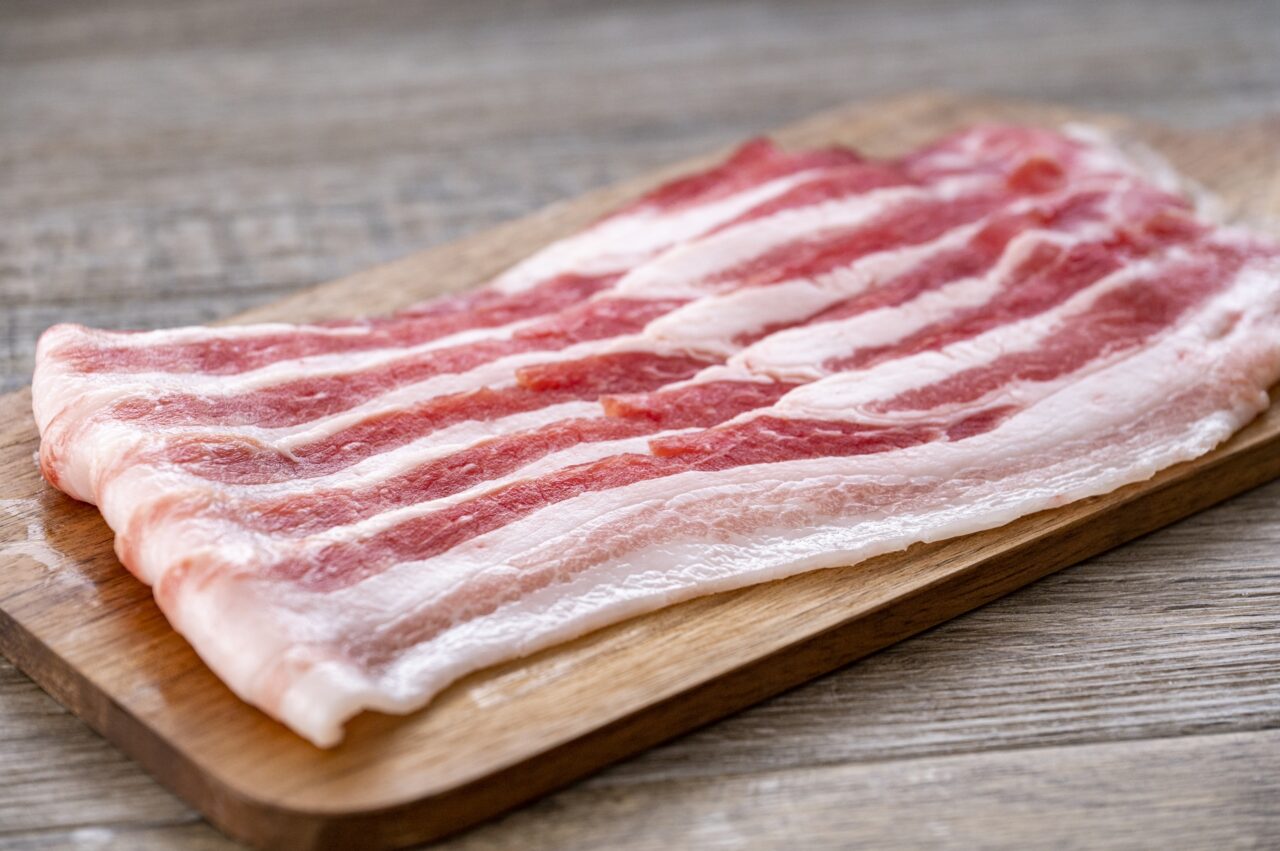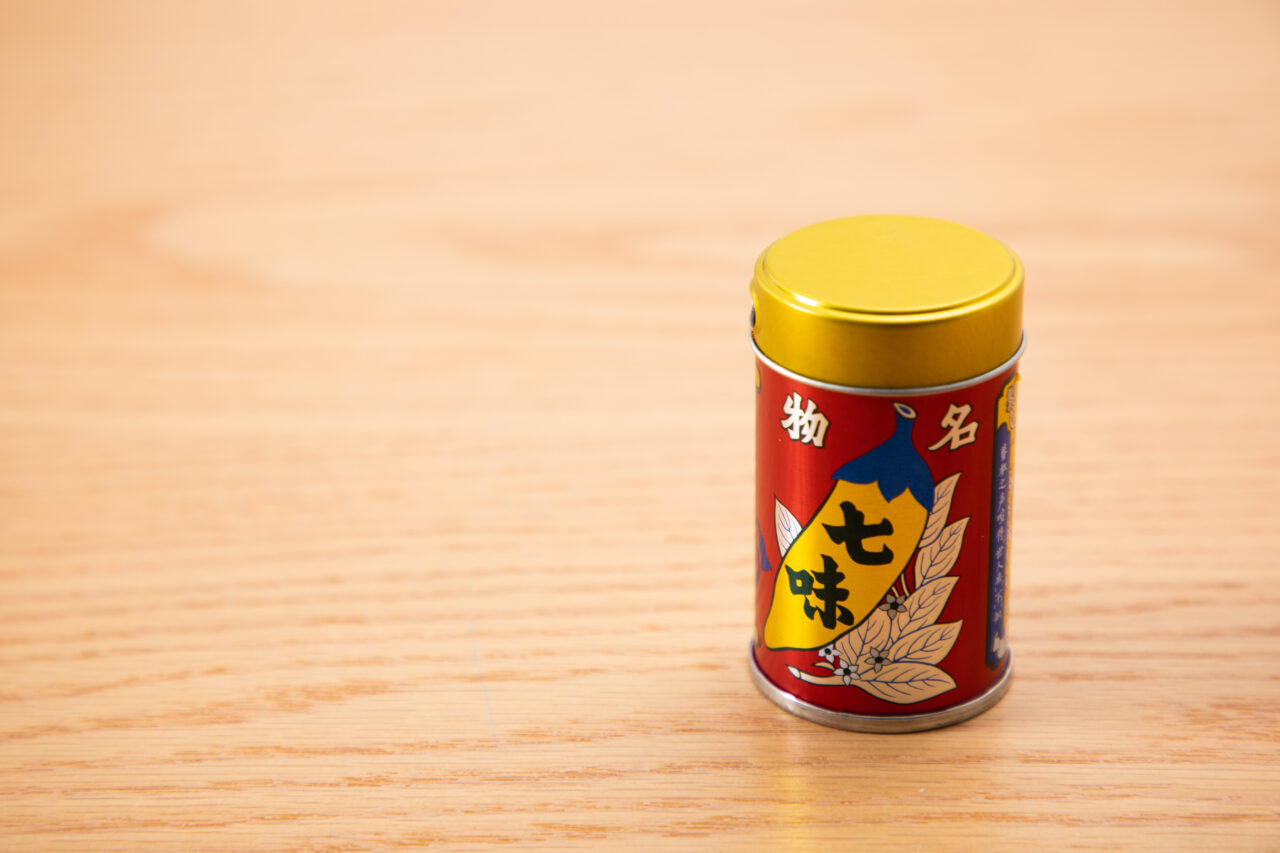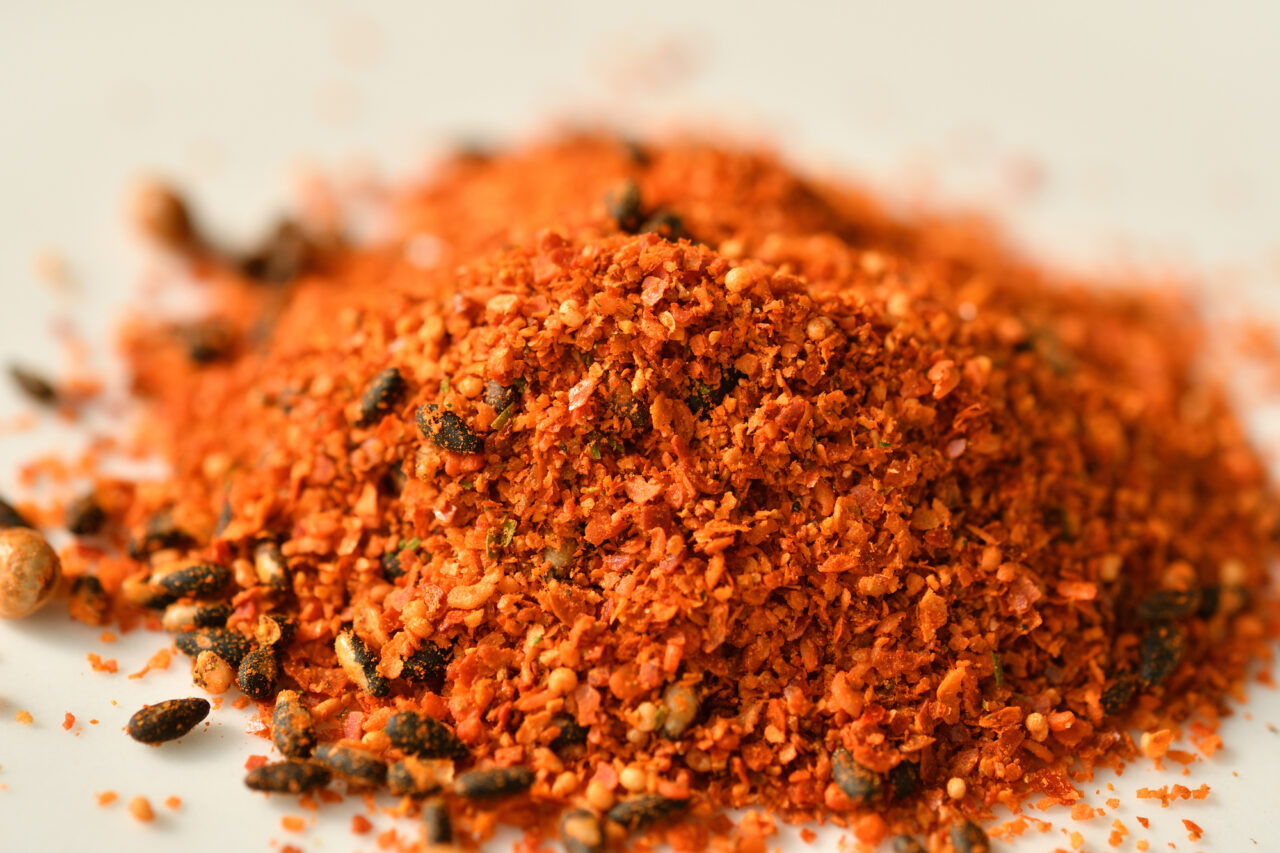Pork and Vegetables Miso Soup, also known as butajiru or tonjiru, is a classic Japanese soup made with root vegetables, pork and Japanese soup stock. The soup base is full of umami and contains bite-size meat and vegetables as accompaniments. This kind of miso soup is filling and goes very well with rice, so it is frequently found in washoku set meal restaurants as well as in-home cooking. OMUSUBI has created a special Kurobuta Pork and Vegetables Miso Soup for Hong Kong customers, using Japanese Roppaku Kurobuta pork with a moderate fat content that releases aroma to make the soup base more flavorful. With each mouthful, you can enjoy the diverse textures from seven nutritious ingredients. The rice koji shiro miso used in the soup base is supplied by Kubota Miso Shoyu from Chiba Prefecture, a manufacturer that has close to a century’s experience of making miso. Their blend adds sweetness to the saltiness for a delicate and elegant flavor. Finally, the soup is garnished with shichimi togarashi (seven spice mixture) from Yawataya Isogoro, one of the three oldest shichimi stores in Japan. This adds a hint of spiciness and makes the soup even more appetizing.
Kurobuta Pork and Vegetables Miso Soup
Main Ingredients
Grilled flying fish (Japan), bonito (Japan), kelp (Japan), Kurobuta pork belly (Japan), burdock, white radish, carrot, taro, konjac, (Japan), shimeji mushroom, welsh onion, white miso (Japan), shichimi
Nutrition Information
| Energy (kcal) | 97.6 |
| Protein (g) | 4.3 |
| Fat (g) | 5.2 |
Tasting Notes


What is the Roppaku Kurobuta pork?
Among all Japanese pork, Kurobuta pork is among those of the best quality and is often found in different dishes in Japanese cooking. Kurobuta originates from the English Berkshire breed. Roppaku means “six white (marks)” and Kurobuta is “black pig”, a reference to the limbs, snout, and tail of the Berkshire and Kurobuta being white. The Berkshire boasts of tender, juicy and tasty meat, and was selected as the pork of choice by the British royal family. In the 19th century, the British government sent Berkshire pigs to Japan as a diplomatic gift, and after careful breeding by Japanese pig farmers, they became the Roppaku Kurobuta with fine muscle fibers, an even distribution of fat, and a sweet and delicious flavor.


Yawataya Isogoro – a classic shichimi brand
When the Japanese enjoy butajiru, they usually sprinkle shichimi powder on top to help remove the smell of raw pork and enhance the aroma and taste. This time, we have chosen shichimi from Yawataya Isogoro, a shop dating back to more than 280 years ago. Their shichimi powder is made from Japanese pepper, flaxseeds, sesame seeds, sun-dried tangerine peel, shiso and yuzu, each carrying a unique taste. And because the brand hails from Nagano Prefecture where the weather is cold, raw ginger is also added to achieve a better balance of spiciness and aroma. With its classic and beautiful packaging, their shichimi is not only an indispensable seasoning on the tables of Nagano residents, but also a popular souvenir for tourists.